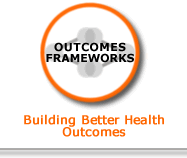Link through the outcomes (2a)
Effective, comprehensive and evidence informed RSHP education provided from a young age, will contribute to young people having the appropriate knowledge, attitudes and skills to engage in equitable, safe and consensual relations as well as increased knowledge about nurture, attachment and parenthood. This will in turn contribute to greater engagement in safe, healthy and equal relationships (such as positive sexual behaviour, reductions in gender stereotyping and dating violence) and more informed choices about parenthood. This will ultimately contribute to a reduction in pregnancies and subsequent unintended pregnancy as well as improved health and social outcomes for young people.
Summary
Primary and secondary prevention programmes to reduce relationship violence and abuse
-
Limited highly processed evidence was identified for the effectiveness of programmes to address gender-based inequalities and violence. While some primary prevention approaches are promising, there is not currently sufficient evidence to recommend any particular adolescent dating violence- prevention programme over another. (1)
Promoting social and emotional wellbeing
Relationship, Sexual Health and Parenthood (RSHP) education
Comprehensive SRE
-
There is good evidence that comprehensive sex and relationship education (SRE) programmes delivered in a range of settings are effective in contributing to positive sexual behaviour and there is no evidence that they increase sexual risk behaviour. (2, 3, 4, 5, 6)
-
Few studies have examined the impact of comprehensive SRE programme on pregnancy; however a small number of studies have found a positive impact. (5,6) Programmes that are multimodal and incorporate education, skills building and condom promotion may reduce pregnancy and sexual activity. (6)
-
Comprehensive programmes are more likely to be successful if they include a theoretical basis, are delivered by trained professionals and provide specific content focusing on sexual risk reduction. The available evidence points to a number of common characteristics that are associated with the effectiveness of interventions in terms of the development, content and delivery of SRE programmes.(2,3)
Parental involvement in SRE
-
Evidence suggests that family structure and connectedness, parental monitoring and parental attitudes and values about sex are associated with sexual behaviour among adolescents. (7)
-
There is good evidence that school, home and community based SRE programmes which involve parents can have a positive impact on young people’s knowledge and attitudes and can improve parent–child communication. (7,8)
-
There is reasonable evidence to suggest that programmes with a more intensive parent component can have a positive impact on child–parent interactions. (7)
-
There is a limited body of highly processed evidence about the effectiveness of programmes including a parenting component in reducing sexual risk behaviour. Programmes that are intensive and focus on parental monitoring or regulation are the most promising. (3, 7, 8)
Peer-led interventions
Abstinence programmes
Whole school and multiple setting interventions
-
A small number of studies indicate that general health education programmes which involve a community component are effective in reducing sexual risk behaviour. Promising evidence from one study suggests that a whole-school approach may reduce sexual risk behaviour in the longer term. (2, 3, 11)
Parenthood programmes
References:
-
Scott E. A brief guide to intimate partner violence and abuse. Edinburgh: NHS Health Scotland; 2015. Available at : http://www.healthscotland.com/documents/25774.aspx (accessed 3 June 2015).
-
Jones L, Bates G, Downing J et al. A review of the effectiveness and cost- effectiveness of personal, social and health education in secondary schools focusing on sex and relationships and alcohol education for young people aged 11 to 19 years: final report. Liverpool: John Moores University Centre for Public Health; 2009.
-
Kirby D. Emerging answers: Research findings on programs to reduce teen pregnancy and sexually transmitted diseases. Washington DC: The National Campaign to Prevent Teen and Unplanned Pregnancy; 2007.http://thenationalcampaign.org/resource/emerging-answers-2007%E2%80%94full-report (accessed 3 June 2015).
-
Chin HB et al. The effectiveness of group based comprehensive risk-reduction and abstinence education interventions to prevent or reduce the risk of adolescent pregnancy, human immunodeficiency virus and sexually transmitted infections: two systematic reviews for the guide to community preventive service. American Journal of Preventative Medicine 2012; 42(3):272–34.
-
Goesling B, Colman S, Trenholm C et al. Programs to reduce teen pregnancy, sexually transmitted infections, and associated sexual risk behaviours: a systemic review. Washington DC: Department of Health and Human Services Office of the Assistant Secretary for Planning and Evaluation; 2013. https://aspe.hhs.gov/basic-report/programs-reduce-teen-pregnancy-sexually-transmitted-infections-and-associated-sexual-risk-behaviors-systematic-review(accessed 3 June 2015).
-
Oringanje C, Meremikwu MM, Eko H et al. Interventions for preventing unintended pregnancies among adolescents (Review). Cochrane Library 2009; Issue 4.
-
Wright D, Fullerton D. A review of interventions with parents to promote the sexual health of their children. Journal of Adolescent Health 2013: 52 4–27.
-
Jones L, Bates G, Downing J et al. A review of the effectiveness and cost- effectiveness of alcohol and sex and relationship education for all children and young people aged 5 to 19 years in community settings: final report.Liverpool: John Moores University Centre for Public Health; 2010. http://www.nice.org.uk/guidance/gid-phg0/documents/pshe-evidence-review-community2 (accessed 3 June 2015).
Toli MV. Effectiveness of peer education interventions for HIV prevention, adolescent pregnancy prevention and sexual health promotion for young people: a systematic review of European studies. Health Education Research
2012; 27(5): 904–913. -
Kim CR, Free C. Recent evaluations of the peer-led approach in adolescent sexual health education: a systematic review. International Family Planning Perspective 2008; 34 (2): 89–96.
-
Jackson C, Geddes R, Haw S, Frank J. Interventions to prevent substance use and risky sexual behaviour in young people: a systematic review. Addiction 2012: 107 (4); 733–47.
|


